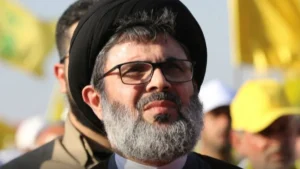“I did the traffic light a favor.” That was probably the sentence I quoted the most the morning after the decision of the Federal Constitutional Court to stop the passing of the heating law for the time being. In fact, it may come across as sarcastic or spiteful when someone knocks out an athlete near the finish line and runs a few extra laps and then claims they were doing them a favour.
And in fact it is the same with the traffic light – they argue about this topic for weeks and months, finally agree on 2 sides of guard rails, which should later represent a law and weigh up the goal with it. And then a member of parliament from the opposition comes along, initiates the stopping of the whole procedure and then claims that he would help the traffic light to reach its goal. But the sentence quoted at the beginning is still true today.
Because of the longer consultation time, the traffic light has the opportunity to correct content-related and formal deficiencies. In addition, a lack of consultation in the Bundestag leads to the formal unconstitutionality of a law, which must be repealed in the first constitutional complaint. The athlete would have made it over the finish line in the first run, but would have been disqualified afterwards because of the gross procedural error. Climate protection would have been done a disservice. And the heat transition would remain on hold, with even longer uncertainty among citizens and the real estate and energy sectors.
Unresolved mistakes become injustices
We should use the extra time the court ordered to correct the inconsistencies and shortcomings of this bill. My Union faction has put many questions to the traffic light because dozens of points are imprecise, inconsistent or simply not thought through. Left uncorrected, these mistakes will lead to injustice (e.g. in the case of financial support), ambiguity (e.g. in the requirements for mandatory energy advice) or even to a complete failure to achieve goals (e.g. due to incorrectly set incentives).
So far, the federal government has not been able to quantify the CO2 savings effect of the new law. The bad thing is that the citizens not only face inflationary rising costs, but at the same time falling subsidies. Normally, the maximum amount will probably be reduced again from €24,000 to €15,000 compared to the rates from the time of the grand coalition. Result: the alleged climate coalition has reduced the demand for heat pumps by more than half compared to the previous year (the latest figures from Bafa also show this), but there is a record for newly installed oil and gas heating systems.
Obligation to provide advice helps citizens less than extended statute of limitations
In addition to these points relating to the entire system of the law, there are also individual regulations that are questionable in detail. The obligation to provide advice helps citizens less than an extended statute of limitations. Because problems with incorrect advice only become apparent many years later, when gas and oil, for example, become too expensive.
The advice should not be mandatory for heat pumps, but for biomass it is. Quarters are defined differently in this law than, for example, tenant electricity. The meaning of this difference is not yet explained, but will complicate planning. After the answers to the various questions, there is still enough time to propose changes.
The mandatory break for the heating law also offers the opportunity to improve our legislative processes in general. Experts have long criticized the comprehensibility, wording and systematics of new legal regulations. They are too often ambiguous, their references to other regulations at least imprecise, often even contradictory. The result is an unfairly unequal administrative action that regularly leaves citizens, companies and other stakeholders at a loss. I mean, laws should be completely understandable to any individual without the help of a lawyer! All politicians are against bureaucracy. But we haven’t addressed this cause for years.
Demand for the content of appropriate consultation time
There are many adjustment screws to improve this. One is a consultation time that is appropriate to the content, for example by defining different forms of the urgency of laws, how much time we want to give ourselves for the evaluation of the statements of the Federal Council, the opinion of experts and for the final formulation.
And for the heating law, the traffic light shortly before the finish of its long-distance run would be well advised to complete the prescribed extra laps with your head held high. Then there is the chance, after eliminating the many deficiencies in a solid final sprint, to get a law that is strong in content and, above all, legally secure, on the street.
Instead, the traffic light seems to continue to wall: the heating law in the previously unchanged version is still on the agenda of the Bundestag on September 8th for the final reading – without further consideration. If the traffic light continues with this plan, if it allows consultation time to elapse without consultation, it disregards the reasoning behind the decision of the constitutional court. Because that didn’t order the simple postponement of the finish line, but demanded an opportunity to discuss the matter. My group and I will continue to advocate for this.
Source: https://www.focus.de/politik/deutschland/gastbeitrag-von-thomas-heilmann-namensbeitrag-von-thomas-heilmann-zum-geg_id_201361108.html


